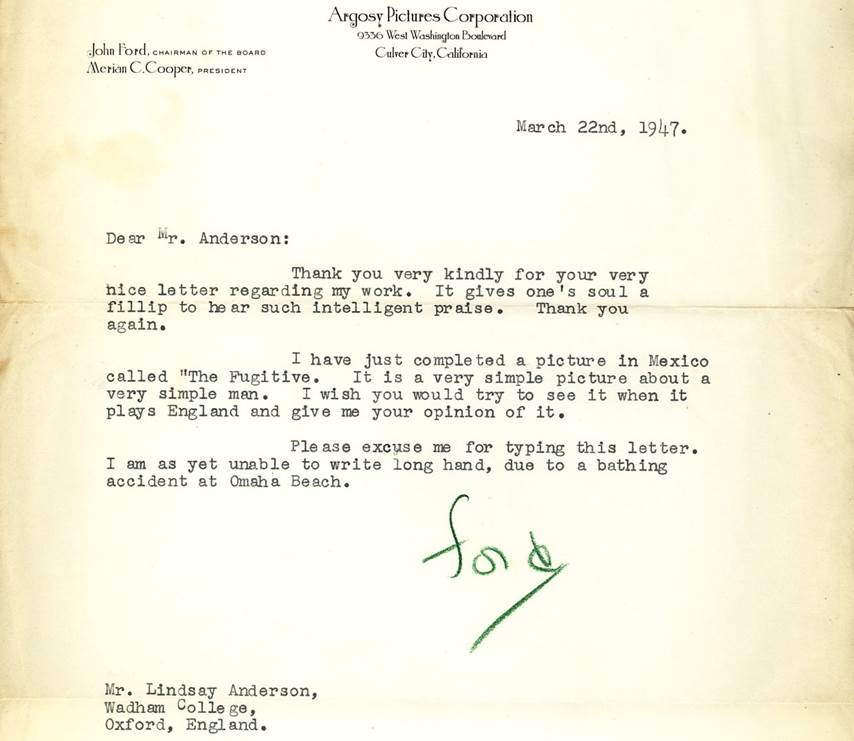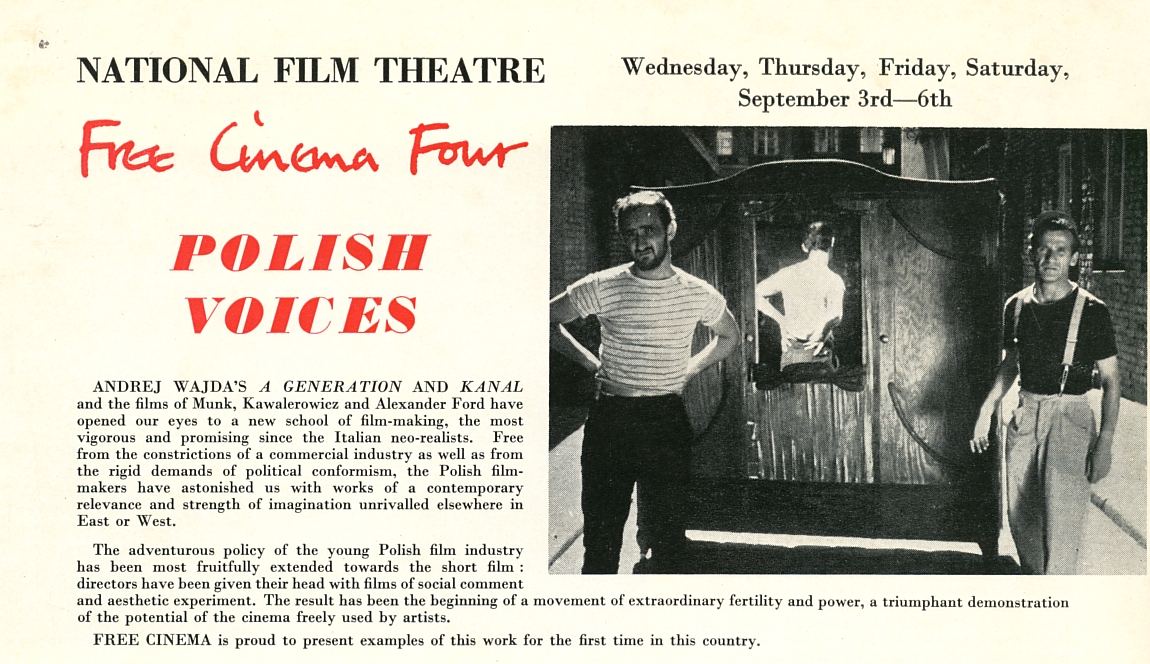Last week a major international symposium was held at Lund University to celebrate the work of one of British cinema’s greatest talents. Lindsay Anderson Revisited brought together academics, writers, film critics, filmmakers (and archivists!) to discuss the director’s long and colourful career. The many possibilities for research offered by Anderson’s work were reflected in the packed programme with speakers exploring various aspects of Anderson’s career as a filmmaker, theatre director, author and critic. The symposium highlighted the research value of Anderson’s archive of personal and working papers and also its links and connections with other collections both at Stirling and other institutions.
In his paper on Anderson’s friendship with John Ford Charles Barr presented the early correspondence between the two men, reassembled through archival research. Anderson’s early letters to Ford are part of the extensive John Ford Archive held at the Lilly Library at the University of Indiana, with Ford’s replies forming part of the collection of Anderson’s papers at Stirling University. Barr’s detailed examination of these letters brought to light the historical significance of a seemingly innocuous passage in Ford’s first letter to Anderson. Writing to Anderson in March 1947 Ford thanks Anderson for his letter and invites him to write with his views of his new film The Fugitive. Ford apologises for typing the letter, explaining that “I am as yet unable to write long hand, due to a bathing accident at Omaha Beach.” This was Ford’s typically understated way of describing the injuries he received when shooting footage of the D-Day landings in Normandy in June 1944.

(Ref. LA 5/1/2/13/1)
The discussions which took place during the symposium around subjects including Anderson’s ‘Scottishness’ and his work as a documentary filmmaker brought out the links and relationships that existed across the British and international filmmaking community that Anderson operated in. Some of these relationships are reflected in the film-related collections held at Stirling. Anderson’s Archive now sits on the shelves beside the papers of John Grierson, the ‘father of documentary.’ When Anderson emerged as a young filmmaker with his Free Cinema documentaries in the 1950s he challenged the established British documentary tradition started by Grierson in the 1930s. Grierson’s less than enthusiastic response to this new generation of documentary filmmakers and Anderson’s challenges to his Griersonian predecessors are preserved in their papers, a search across both collections highlighting the critical and theoretical distance between the two men.

(ref. LA 1/2/5/13)
Anderson’s connections with his European filmmaking contemporaries were examined in papers relating to his correspondence with the French actor Serge Regianni and his connections with Poland. In 1966 Anderson visited Warsaw to direct a production of John Osborne’s play Inadmissible Evidence which led to an invitation to make a film (The Singing Lesson). Anderson had already visited the USSR in 1957 with the Royal Court Theatre and Czechoslovakia on a number of occasions in the 1960s. The archive includes an extensive photographic collection which includes many images of these trips across the Iron Curtain.
Personal reminiscences, academic investigation and archival research all contributed to an event which opened up many new avenues of research into the life and career of one of Britain’s greatest filmmakers. Thanks must go to the organisers Erik Hedling, Christophe Dupin and Elisabet Björklund for putting together such a stimulating and entertaining programme!